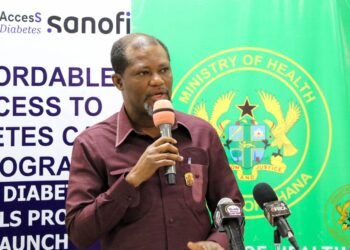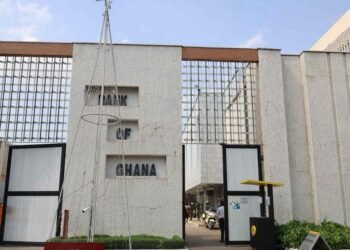Hon. Ursula Owusu-Ekuful, the Minister for Communications and Digitalisation, has formally launched the country’s first 5G network.
This momentous event marks Ghana’s ascent into the fifth generation of wireless communication, promising transformative changes in connectivity, productivity, and economic growth. The ceremony highlighted the significance of each generational leap in mobile networks, celebrating how 1G to 4G shaped communication in Ghana, and anticipating the revolutionary potential of 5G.
“The potential of 5G extends beyond mere incremental improvements; it is a revolutionary leap forward that promises to redefine connectivity, productivity, and overall quality of life.
“With its unparalleled speed, low latency, and enormous capacity, 5G has the potential to drive innovations in every sector—agriculture, health, transport, manufacturing, and beyond.”
Hon. Ursula Owusu-Ekuful, Minister for Communications and Digitalisation
The initial rollout is focused on major urban centers—Accra, Kumasi, and Takoradi—with additional urban areas expected to gain access by late 2024.
The minister revealed that a “multi-phase approach” is planned to ensure full national coverage, including rural areas, by 2026. This timeline aims to balance rapid deployment with quality and infrastructure readiness, ensuring every Ghanaian will eventually experience the benefits of 5G.
The fifth-generation network is expected to empower industries across Ghana, from agriculture and health to manufacturing, by enabling the Internet of Things (IoT), artificial intelligence (AI), and smart cities, which will transform daily life and business operations in unprecedented ways.
Hon. Owusu-Ekuful acknowledged the collaborative work that has led to this milestone, praising the coordinated efforts of the government, industry stakeholders, regulatory bodies, and citizens.
Ghana’s strategy to support 5G, she said, has included establishing investment-friendly policies and promoting inclusivity to ensure that all Ghanaians benefit from the digital revolution.
Hon. Owusu-Ekuful indicated significant part of this effort involves strengthening educational institutions to prepare the next generation for a digital economy.
“We are constructing a Digital Youth Hub at the university of Ghana which should serve as a prime hub for the development of Ghana specific 5G use cases in all the critical sectors of the economy.
“This high-speed shared network can only help accelerate that exciting development, and we hope to replicate this on other campuses.”
Hon. Ursula Owusu-Ekuful, Minister for Communications and Digitalisation
Enhancing Digital Skills and Cybersecurity

While the benefits of 5G are vast, Hon. Owusu-Ekuful addressed the challenges head-on, particularly cybersecurity, data privacy, and equitable access.
Recognizing that 5G will increase data transmission and interconnectedness, she affirmed the government’s commitment to protecting user data through stringent data protection protocols in line with international standards. “Data privacy and security are critical components of our digital strategy,” Hon. Owusu-Ekuful added.
“We are implementing stringent data protection protocols aligned with international standards to safeguard user information as 5G becomes widely available.
“This includes end-to-end encryption and advanced cybersecurity measures to protect against potential breaches.”
Hon. Ursula Owusu-Ekuful, Minister for Communications and Digitalisation
In addition, Hon. Owusu-Ekuful stated that the government is collaborating with industry experts to regularly monitor network security, ensuring that any emergent dangers are addressed promptly. “We aim to build a trusted digital environment where Ghanaians can fully benefit from 5G while feeling secure about their data,” she noted.
Affordability remains central to the government’s 5G rollout plan. Hon. Owusu-Ekuful mentioned ongoing partnerships with telecom providers to ensure that data plans meet a range of budgets, from small businesses to students and low-income households.
Public-private partnerships are also being explored to reduce consumer costs, a move designed to make high-speed connectivity more accessible across social and economic classes.
Reflecting on lessons from previous network rollouts, the minister noted that Ghana had opted for a shared, neutral wholesale network model for 5G deployment.
By granting the National Communications Infrastructure Company (NGIC) exclusive rights for 10 years to develop 4G/5G infrastructure nationwide, Ghana aims to create an even playing field among network operators.
This approach encourages competition based on service quality rather than infrastructure reach, thereby benefiting consumers.
The minister’s speech set a hopeful tone for a future where 5G drives innovation, economic growth, and social cohesion.
READ ALSO: Paul Okoye, Wife Welcome First Child




















